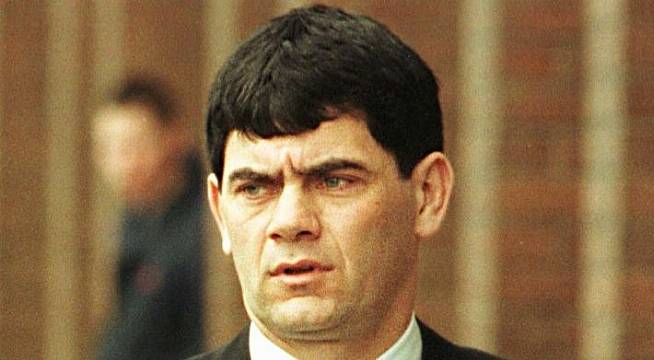The Supreme Court has been urged to rule that the pending trials of Gerry Hutch and ex-Sinn Féin councillor Jonathan Dowdall in the non-jury Special Criminal Court (SCC) would be unlawful.
The pair's legal representatives claim the SCC has become a de-facto permanent court when the relevant legislation only provides that it be temporary.
The argument was made in an appeal by the two men, who are charged with murder, against a High Court decision rejecting their challenge over the trial being held in the SCC.
The High Court found the temporary/permanent argument was a political question and therefore not justiciable before a court.
If the decision to continue the SCC is made without bad faith, or absent mala fides, then the courts could not intervene, the High Court also found.
Hutch (58), who was extradited from Spain, and former Dublin City councillor, Dowdall (44), of Navan Road, Dublin, are both charged with the murder of David Byrne (33) at the Regency Hotel in Dublin on February 5th, 2016. They both deny the charges.
Court powers
Michael O'Higgins SC, in submissions on behalf of Mr Dowdall, argued that if the court finds the SCC is operating as a permanent court, then it is operating outside the powers provided under the Offences Against the State Act 1939 under which it was first set up.
There was also a duty to keep the role of the SCC under review by the Government and the Dáil and if that duty has not been discharged then the court is acting outside its powers, he said.
Although it is not a question of how much time has passed which makes something permanent, almost 50 years since the proclamation setting up the present SCC, it is not operating on a temporary basis but has morphed into a permanent court and is in "expansion mode", he added.
Brendan Grehan SC, for Mr Hutch, argued the Executive and the State had misinterpreted the legislation which allows the denial of the right to trial by jury.
It was not an acceptable state of affairs to oust the jurisdiction of the courts to intervene when it is up to the Supreme Court, ultimately, to decide what a law means, he added.
Patrick Gageby SC, for the Irish Human Rights and Equality Commission, which was given permission to participate in the appeal as an amicus curiae (friend of the court), said his client's substantial concern was whether the finding that the proclamation (setting up the SCC) was purely political so long as the Government held a genuine opinion that it was not impermissible.
The Commission submitted that it was fully justiciable, and the power of the courts to review cannot be constrained.
Mr Gageby also said the issue of whether the ordinary courts are inadequate for the trial of certain crimes is "highly factual" and not a matter of high policy or the sovereign power of the State.
Protection
There was also the question of statutory protection for jurors in circumstances where ordinary jury courts are not considered adequate, he said.
It was notable that in the last 50 years, there has been remarkably little change in legislative provision for the protection and assistance of jurors to ensure they are free from any adverse influence, he added.
Remy Farrell SC, for the Director of Public Prosecutions (DPP) and the Minister for Justice, said his side acknowledged the unusual nature and structure of the provision providing for the SCC, in that it permits its own commencement on the basis of the circumstances as they apply at the time.
In relation to the question of the intimidation of jurors, the relevant yardstick is not whether there is intimidation but whether the ordinary courts are adequate for certain offences.
The question of whether there should be a review of the SCC, or how often a review should be held, was a purely political decision, he said.
Shane Murphy SC, for the Oireachtas, the Attorney General and Ireland, said Section 35.5 of the Offences Against the State Act confers on the Oireachtas the right to pass a resolution to annul the SCC should it be thought to be necessary.
There was no evidence, however, the Oireachtas had failed in its duty in this respect and, in fact, there has been no attempt to annul, he said.
Chief Justice Donal O’Donnell, presiding, said the court was reserving its decision.







